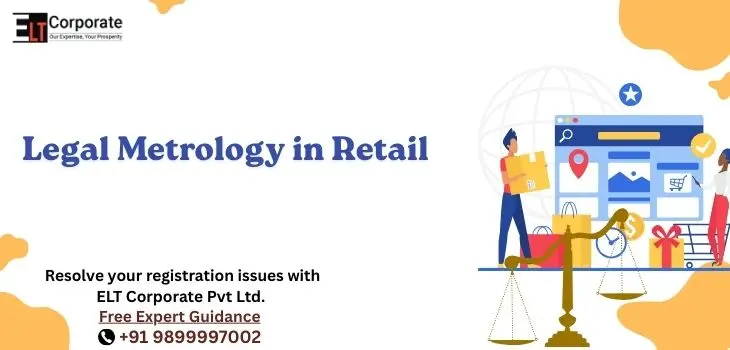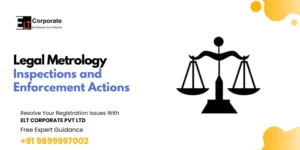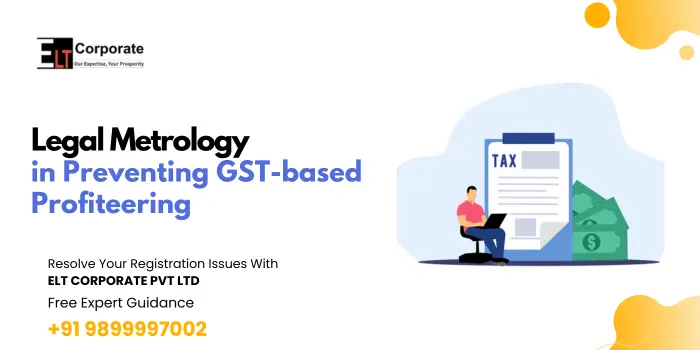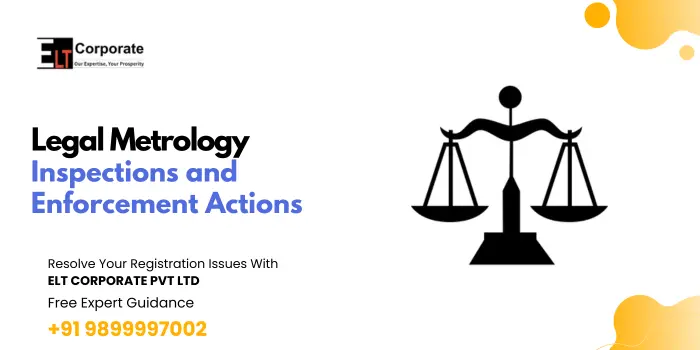In today’s dynamic retail environment, the legal metrology in enhancing consumer trust in retail is the cornerstone of permanent trade development. From grocery items and cosmetics to electronics and packed goods, buyers depend on accurate information, proper pricing and transparency. Legal metrology plays an important role in creating this trust by regulating weight, measures, packaging and labeling, ensuring that retailers work within a structure that prefer consumer protection and fairness.
This guide explains why legal metrology matters in the retail, how it protects consumer interests, and compliance steps should be adopted to promote long -term trusts.
Why Legal Metrology Matters in Retail?
- Accuracy in business – ensures that each unit of weight or quantity sold to consumers is correct and verified.
- Appropriate pricing – Protects buyers from hidden costs or misleading MRP announcements.
- Transparency in information – It suggests that each package clearly displays product details such as quantity, manufacturing/termination dates and contact information.
- Consumer Protection – Provides a legal measures against unfair or fraud trade practices.
- Trust Building – Transparent labeling and compliance create reliability, which helps retailers to establish strong customers loyalty.
1. Mandatory LMPC Registration
Retailers dealing in pre-packaged goods must obtain LMPC (Legal Metrology Packaged Commodities) certification. This ensures compliance at both the state and central levels.
2. Labeling & Declaration Rules
Every package in the retail space must clearly declare:
- Net quantity (weight, volume, or number).
- MRP (inclusive of all taxes).
- Manufacturer/Importer details.
- Expiry/best-before dates (for perishables or cosmetics).
- Customer care details for grievance redressal.
3. Verification of Weighing & Measuring Instruments
Retail scales, billing machines, and measuring equipment must undergo regular inspection and stamping by the Legal Metrology Department to prevent manipulation.
4. Language Requirements
Product labels must be in English and Hindi. For regional markets, local languages may be required to ensure accessibility for all consumers.
5. Penalties for Non-Compliance
- Fines: Up to ₹25,000 for minor violations.
- Seizure of Goods: Non-compliant products may be withdrawn from shelves.
- Imprisonment: Serious fraud or repeated offenses can invite imprisonment of up to 1 year.
Common Retail Compliance Mistakes
- LMPC sells pre-packed goods without registration.
- Wrong or incomplete announcements (eg, missing expiry date or pure volume).
- Using unacceptable weight scales.
- Cosheral proposals or discounts that do not reflect on the MRP label.
- To ignore dual language requirements for packaging.
How Retailers Can Stay Compliant?
- Get LMPC certification before selling packed goods.
- For accuracy, operate the periodic audit of label and packaging.
- Ensure that all weight devices are calibrated and verified annually.
- Maintain a proper compliance record of inspection and verification.
- Train staff on consumer rights, labeling rules and moral retail practices.
How ELT Corporate Helps Retail Businesses?
At ELT Corporate, we enable retail businesses to align seamlessly with legal metrology provisions while enhancing their reputation for trustworthiness. Our services include:
- LMPC Certificate Registration – For retailers, manufacturers, and e-commerce sellers.
- Label & Packaging Review – Ensuring all mandatory declarations are accurate.
- Calibration & Verification Support – For weighing and measuring devices used in stores.
- Audit & Inspection Assistance – Helping retailers confidently face regulators.
- Legal Advisory – Handling notices, penalties, or disputes arising from non-compliance.
Conclusion
In the retail field, the consumer trust is built on transparency and fairness, and the legal metrology provides the regulator spine to achieve it. Retail sellers who not only avoid punishment, but also strengthen the reliability of their brand. By embedding the trust through compliance, businesses can secure long -term loyalty in a highly competitive market.
Need help with legal metrology compliance for your retail business? Contact ELT Corporate today for end-to-end guidance.
Q1. Do small retail shops also need to comply with Legal Metrology?
Yes. Any retailer dealing with pre-packaged goods must comply, regardless of size.
Q2. Can retailers offer discounts below the MRP?
Yes, but the MRP itself must be correctly declared, and discounts must be transparently displayed.
Q3. How often should weighing machines be verified?
Annually, by the state Legal Metrology Department.







